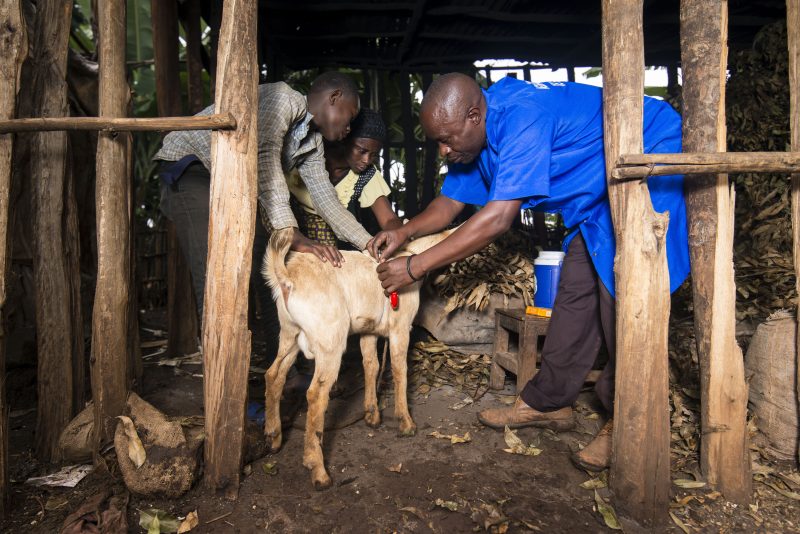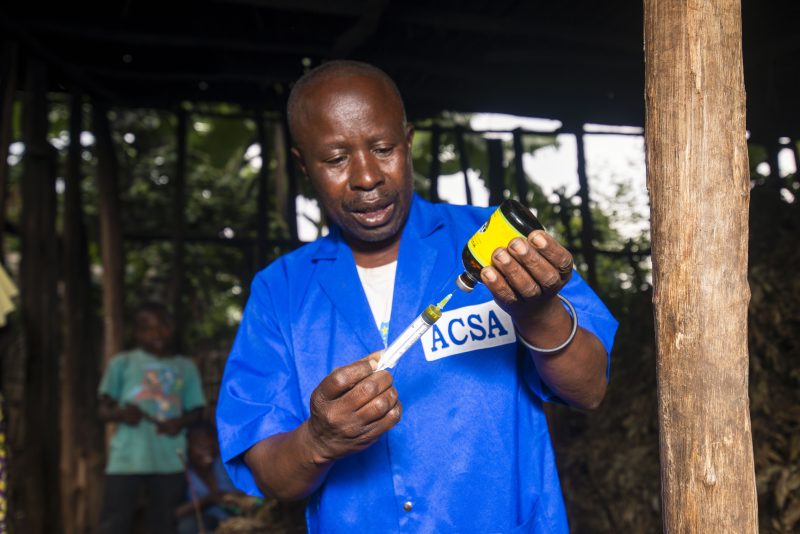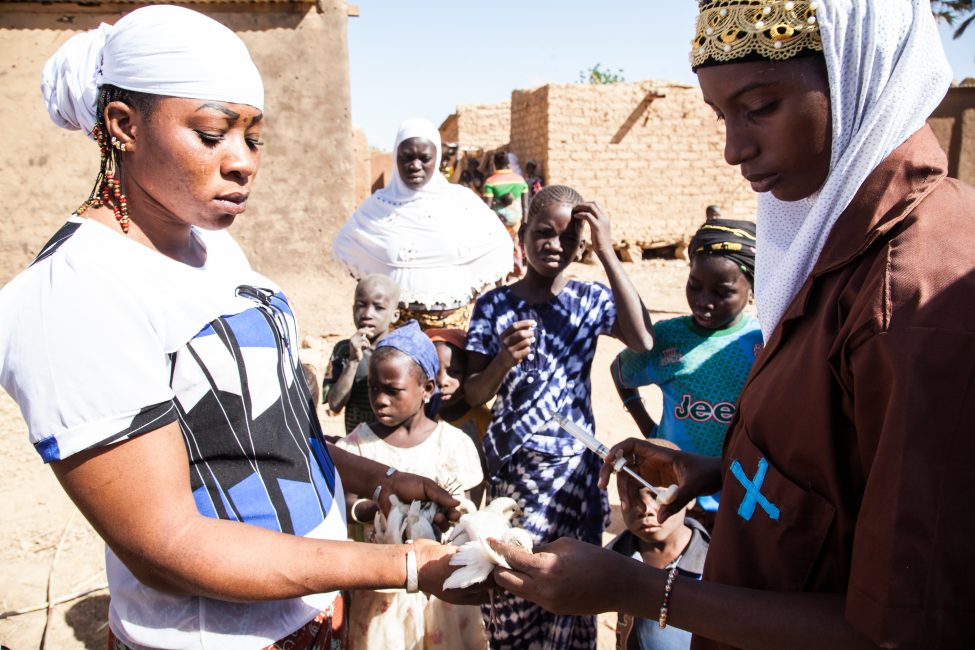In rural areas of Asia, Africa and Latin America, Community-based Animal Health Workers (CAHWs) deliver valuable animal health services to livestock keepers where other animal health service providers are lacking. Their work plays an important role for populations that depend heavily on animals for their livelihoods and food security. But they are faced with a lot of constraints.
Our network VSF International is currently implementing a two-year project entitled “Strengthening the enabling environment for community animal health workers through development of competency and curricula guidelines.” It just delivered a first report, aiming to tackle the difficulties and limitations that community-based animal health workers encounter around the world.
The report

Community Animal Health Workers are mostly livestock keepers who are trained to recognize livestock diseases and give basic treatment to their neighbours’ animals. ©Arlette Bashizi
This report looks at different programs in Africa, South Asia and Southeast Asia where CAHWs have been trained and worked for over 30 years. The goal is to understand what makes these programs successful and discover the challenges they face. It looks at how they were planned, how the CAHWs were selected and trained and how they were supervised and monitored.
The report recommends enhancing the sustainability of future CAHW programs. It also highlights their One Health impact and emphasizes the advantages of involving more women.
Read the full report here.
VSF-Belgium supports CAHWs in Africa
In all the African countries were we support local & private veterinary services, we have noted the instrumental role CAHWs play to keep livestock healthy. In 2022, we managed to support 993 CAHWs across 8 countries. In the most volatile regions, they are sometimes the only ones to be able to access the herds.

The income Dieudonné Rukara receives from his work as a CAHWs enables him to provide for his 16 children. ©Arlette Bashizi
Dieudonné Rukara was trained in 2018 to work as a Community-based Animal Health Worker in the east of DR Congo: “Thanks to the training I received from Vétérinaires Sans Frontières Belgium, I can treat animals. I know how to feed them properly, and how to milk cows safely. Since I started working as a CAHW, 80% of the new livestock grows up healthy in my village, and I have seen a decrease in mortality rates. My goal is to continue to grow my farm and educate my children with the income from my work as a CAHW. I pray that Vétérinaires Sans Frontières continues to provide training so that we can best support farmers in my village.”

